Fritz Kampers
出生 : 1891-07-14, Munich, Germany
死亡 : 1950-09-01

Bürgermeister Karl Krambac

Polizist
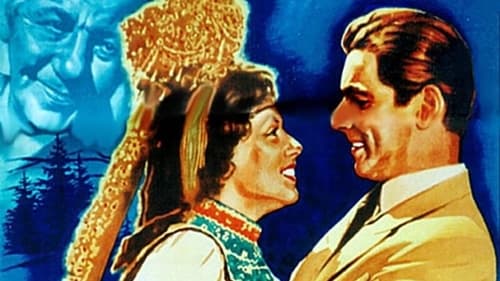
Jürgen
The painter Hans Hauser falls head over heels in love with the "Black Forest girl" Bärbele Riederle. He travels to her home village and soon the two realize that they are made for each other.

Two young students, a man and a woman, rent the same appartment without knowing it. They have to arrange with their upcoming feelings, strange neighbours and poverty.

Steinklopferhans.

Wirt

Vera’s father

Rapp, der Schloßherr

August Danzer

Gastwirt Paust
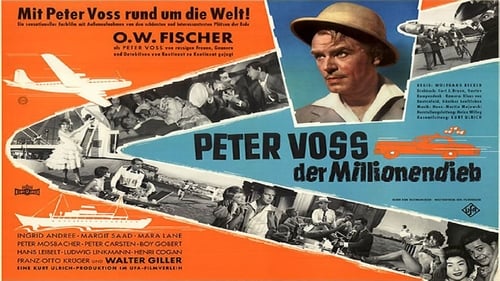
Fritz Mohr
Adaptation of Seeliger's novel, starting production in 1943, finished by DEFA studios after the war.

Bürgermeister Doll

Jagdaufseher Büttner

Pollinger
A concert pianist, the romantic idol of many women, is seduced away from his wife. The seductress's husband takes in the pianist's wife, and all four pretend to be happy with the new arrangement.

Metzgermeister Pröhle

Prof. Muhry
The Viennese seamstress Gabi Berghofer wants to marry an innkeeper. But he marries someone else. Gabi then becomes a model for a painter, who falls in love with her. She spends some wonderful time with him, but he, too, leaves Gabi to return to his family. Desperate and deserted, Gabi stands before the gravestone of the young artist Gabriele Dambrone, who took her life due to heartache. Then she decides to once more take her life in her own hands and to make her old dream of becoming an actress come true.

Roto
Charlie, a very gifted, young acrobat, cannot find employment. A dancer and colleague, whom he trained, has gotten him a job as a stagehand at a vaudeville theatre. After a number of chaotic events and some highs and lows - none of which ever discourage him - his hour arrives: an act can't go on and "Akrobat schööön" can finally make his grand entrance.

Hillmer

Gastwirt

Schmied Unterhuber

Malimmes

Dr. Ernst Schweninger
German chancellor Otto von Bismarck promises the dying emperor Wilhelm I. to be loyal to his grandson. But the gap between young Kaiser Wilhelm II. and old Bismarck is rapidly widening. It soon appears that an era is coming to an end.

Mathias Ert

Feldwebel Mathias Ertl

Wachtmeister Zabl
The two stars of an upcoming operetta performance quarrel constantly. but they also fall in love with each other.

Fritz Möbius
Nazi cinema produced numerous WW2 military epics, one of the most impressive of which is Ufa's first-rate 1941 production, Uber Alles in der Welt,directed by Karl Ritter (Stukas). Ritter customarily produced morale-building propaganda pictures, and this, his first propaganda film to deal with the war, as well as his finest effort, was one of the highest-grossing pictures of the Third Reich. Set largely in France, England, and Spain, the film chronicles the plight of Germans caught by the outbreak of war and their frantic attempts to return to the Fatherland to join the battle. All of Germany's enemies receive equal disdain. The British, the French, the Poles, and the Jews are portrayed respectively as warmongers, profiteers and cowards. In the end, all that is important is returning to Germany.

Anton Purtscheller

Wachtmeister Werner

Xaver Spöckmeier

Xaver Aigner

Pieter Jonken

Kapitän Münzer

Josef Burgsteller

Robert Berteen

August Weichert

Strambach, Gefängnisverwalter
After the two vagabonds Robert and Bertram flee from prison, they get to know the innkeeper’s daughter Lenchen at the “Silver Swan” Inn. Because her father is in desperate need of money, Lenchen is to marry the creditor Biedermeier instead of her beloved military recruit Michel. In order to prevent that, Robert and Bertram travel to the capital and, under false names, manage to make their way into the house of the Jewish commercial advisor Ipelmeyer, to whom Biedermeier is deep in debt. During an evening costume ball, the bums steal the family jewels and give them to Lenchen’s father. Lenchen and Michael get married and Robert and Bertram flee in a balloon into the sky.

Fritz Hartmann

Bürgermeister Eberhorn

Oberfeldwebel Moebius

Kriminalkommissar Weigelt

Moebius

Kaufmann Sörelund

Heini Hartmann, Gefreiter
Four soldiers on leave from the German army refuse to participate in the leftist October 1918 revolution in Berlin.

Gustav 'Gustl' Moser

Sebastian Huber, Gastwirt
Old Meiseken, a gingerbread baker, has been dead for three years, but his bosses don’t know that. They’ve been paying him his pension all this time, unaware that his former landlords have been cashing the checks. When, one day, the assistant head of the bakery, Tony, pays a visit to Meiseken’s place to get a hold of an old recipe, someone’s got to play the part of Meiseken! The fraud blows up in the landlords’ faces; but in the end, Tony gets the recipe book and even a new bride.

Iwan
Russia, 1917. Revolution is in the air. The Sevastopol anchors In Saint Petersburg. The sailors are thirsty for women and celebration. The ship becomes a dancehall. Bloodbath, pillage and kidnapping follows. A Nazi/Germany propaganda film.

Otto Schnöcker

Jaskulski
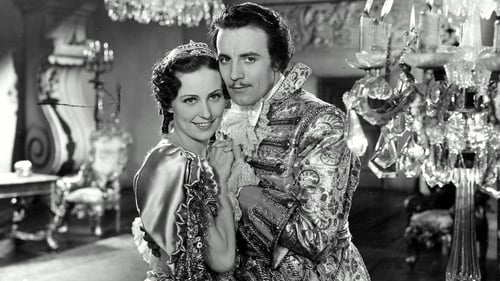
Gouverneur Oberst Ollendorf
To take a revenge on countess Laura, who slapped him at his proposal, the Governor of the occupied Poland gets her fall in love with a poor student, and exposes him during wedding banquet.

Bachmoser - Bürgermeister

At the start of the 18th century, British Queen Anne, inspired by her German born lady in waiting, emancipates the country's farmers and peasants.

Zirkusdirektor Cherubini
Rosika, a girl from Genoa, fled her innkeeper stepfather after he tried to abuse her. She finds refuge - and a job as well - in a traveling circus. Cherubini, the owner of the big top, falls in love with the lovely young woman and makes her the star of the show 'Light Cavalry'. But unfortunately for him Rosika's heart beats for Geza, the stable boy.
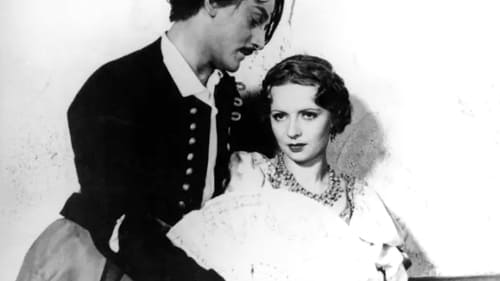
Koloman Zsupan

Paul Kluthammer, sein Faktotum
'Love and the First Railway' is what this movie's title would mean in English. This is one of those films that depicts fictional characters participating in an historic incident. The actual first railway was built in England, of course. But according to this movie, the first railway (in Germany, at least) was built from Berlin to Potsdam, in 1838. I haven't the faintest idea if that's correct, but the people who made this movie do seem to take a great deal of interest in historical accuracy, so I'll take their word for it. Anyway, a title at the beginning establishes that this movie is set in 1838.

Alfredo, Aufseher in einem Steinbruch

Dr. Fritz Göricke

Director

Musketier Schlumberger aus Bayern

Director

Gustav
Film by Reiber.

Jakob Haringer

Hannes Butenschön
While out dancing, two sailors fall for the same girl.

First adaptation of Hans Fallada's novel of the same name.

Willy Krause
1933 German film.

Der Schmuggler-Führer

Paul Krause
Film by Seitz.

Simoni
A Song Goes Round the World is a 1933 German drama film directed by Richard Oswald and starring Joseph Schmidt, Viktor de Kowa and Charlotte Ander.

Max Krause, ehemaliger Rennfahrer

Klemm-Maxe

Paul Hanke

Georg, "Artistenorje"
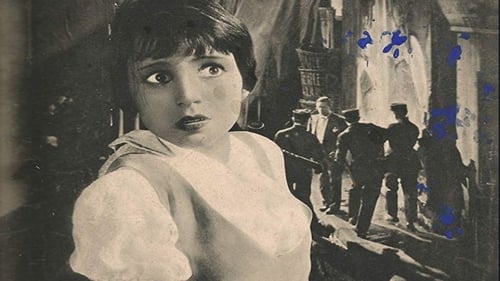
Bancroft
Young French student Madeleine Duchanel wants to go to the theater and therefore pulls out of the well-protected environment of her school. In Paris she hopes to make a career, but in her naivety she ends up on the street.

Dr. Scharfinger

Herr Güterinspektor
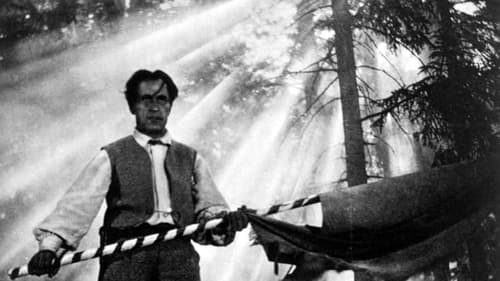
A young medical student returns to his Tyrolean home to find out that Napoleon's troops have taken over the area and that his mother and sister have been murdered.

Tobias
Out of unlikely circumstances an underground ticket vending girl and a mail pilot fall in love.

On the eve of the Great War, a cavalry captain who despises the opposite sex falls in love with a wealthy young lady.

Fritz Wagmüller

Alois
A forest ranger, after spending years tracking down a poacher, is taken aback to learn the man is the father of his beloved.

Paul, ein Ulan
A town's business begins to suffer, when a military outfit is confined to quarters for three weeks because they have been harassing the local women.

Paulus van Geldern is a lawyer who has made a name for himself as a criminal defense attorney, but is notoriously short of funds due to his unbridled passion for gambling. His gambling causes problems with his marriage to Martha who is thriving.

Chauffeur Köster

Fritz Wenneis, Arbeitsloser

Feldwebel Krause
The adventures of smart soldier Gustav Diestelbeck include managing his superior officer, competing for the canteneer's daughter, evading punishment for discipline faults and hosting Prinz Willibald during his visit to the regiment.
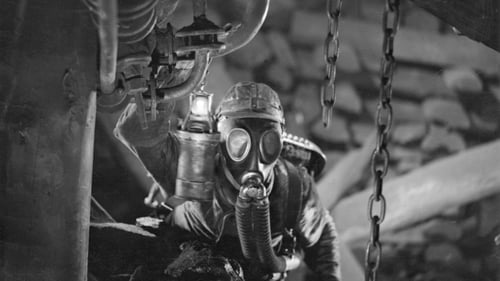
Wilderer
The picture tells of a mine disaster where German miners rescue French miners from an undergound fire and explosion. The story takes place in the Lorraine/Saar region, along the border between France and Germany.

Paule Zapp

Jonny Belling
This is the German version of Gloria with Gustav Fröhlich & Brigitte Helm in the leads. A French version was filmed simultaneously with André Luguet & Brigitte Helm in the leads.

Bill Huber, genannt "Athleten-Bill"
The night before his wedding George gets drunk and marries a chorus girl. Her boyfriend appears, they fight and are believed dead, so she is now "the bridegroom's widow" (die Bräutigamswitwe). When they both come back one after another they must hide from the Police as they believe they have murdered each other, while the inspector believes there are ghosts in the house.

A love story about composer Franz Schubert based in 1827, Vienna.

Jo

Pepi
Remake of an Ernst Lubitsch silent comedy about a farm boy who is fond of two sisters, one of whom is beautiful, the other, not so much.

Franz Selbinger
Different kinds of Berliners, the well to do along with the ordinary shopkeepers, enjoy their weekends in the city's suburban garden colonies.
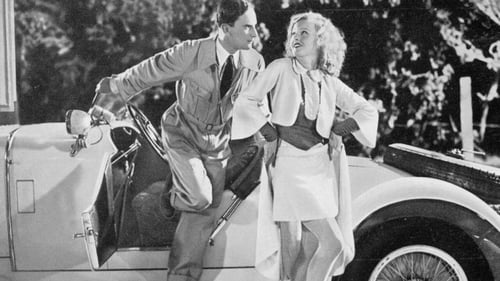
Konsul Cossmann
Die Drei von der Tankstelle, meaning The Three from the Gas Station, was advertised as a German operetta when release and with it’s star studded cast would become the forerunner of Musical films. Even today the soundtrack of the comic harmonists is popular in Germany.

Peter
A heroic young captain in the German Navy finds romance.

Schluck
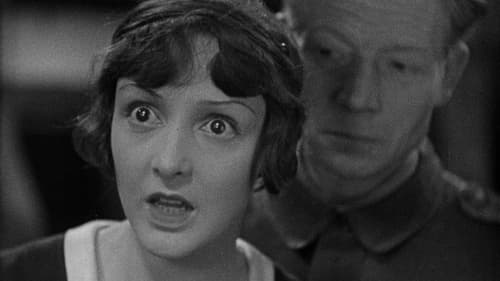
Der Bayer
A group of German infantrymen of the First World War live out their lives in the trenches of France. They find brief entertainment and relief in a village behind the lines, but primarily terror fills their lives as the attacks on and from the French army ebb and flow. One of the men, Karl, goes home on leave only to discover the degradation forced on his family by wartime poverty. He returns to the lines in time to face an enormous attack by French tanks.

Backe

Fritz Petzold

Mitjuscha

Peter Amsel

Oberst Sassin

Fritz Köster

Fritz Marunge

Franz Müller
In the year 1914: The assistants of cobbler Lehmann compete for the affections of his daughter Frieda. Actually she’s in love with her ambitious cousin Fritz, but the cunning Franz knows how to string her along. When Fritz gets drafted, Frieda gives in and marries Franz. Soon Fritz is declared missing and the old cobbler dies of grief. Along the way Franz, who dodged the military service, earns his money with large-scale racketeering. Frieda is miserable. But then Fritz returns from Soviet captivity, prompting Frieda to divorce Franz. Finally Frieda accepts an inheritance from the USA and marries Fritz. With the money they open up a shoe store.

Rummelhart

Sanitätskorporal

John

Ignaz Scheel, Trapezkünstler
Katharina Knie is a 1929 German silent drama film directed by Karl Grune and starring Eugen Klöpfer, Carmen Boni and Adele Sandrock. It is based on the 1928 play of the same title by Carl Zuckmayer.

Jolly Baker

Originally named "The Clairvoyant" presenting the many talents of parapsychologist Elsbeth Günther-Geffers. First banned, later extensively reworked.

Der Obermaat
a silent war movie by Heinz Paul

Seppl Häusinger

Belloni

Bertram Engelke

Möbius

George

Heywoldts Gärtner

Peter Holm

Der Kriegelhofer Quasi

Fritz Leplow

Pfiff

Der Gelbhofbauer

Karl Eichinger

Wilhelm

Der Geselle

Wachtmeister Farkas

Schupo

Steffens, Chauffeur
An international gang of thieves and swindlers decide to move their criminal operation to the Teutonic city of Cologne, but Tom Wilkens, one of the best agents of the international police, is not far behind and leads an investigation to unmask the criminals.

Findelkind des Dorfes

Johann

Polizist
The film follows the comic (mis)adventures of a poor street musician, who is roped into posing as an eccentric nobleman. He and his antics are rapturously received by the members of a bourgeois family desperate to mingle with the aristocracy. The daughter of the family takes a fancy to the baron (in reality, merely a “joke baron”), assuming him to be immensely wealthy.

Bräutigam

Max Hühnerbein

Lemke, Unteroffizier

Iwanoff - Anarchist

Ben Span
Directed by Aleksandr Razumnyj.

Adolf

Unteroffizier Müller

Paul Körner/Hart

Metzeler

Historical drama about the life of Albrecht von Wallenstein.

Der erste Held
"Comedians" - Axel Swinborne is a celebrated stage star. Although much in demand, he now wants to recover and travel by train on vacation. He leans out of the window at full speed, as happens a momentous mishap: his jacket gets tangled on the window lever so unhappy that it ejects the suction force out of the window.

Oetz Honwerth

Arne Mikkelsen

Schlossergehilfe

William Tell (German: Wilhelm Tell) is a 1923 German silent adventure film directed by Rudolf Dworsky and Rudolf Walther-Fein and starring Hans Marr, Conrad Veidt and Erich Kaiser-Titz. The film portrays the story of the legendary Swiss national hero William Tell.

In a distant Teutonic village, people dance and drink merrily celebrating a wedding feast. However, an elderly man tells the villagers that the valley where they live wasn't always happy but sorrowful. This was due to the tyranny of the master of the mountains who ruled the valley despotically.

After the revelation that Georg has seduced her, Maria is driven away by her father. Georg, fearing the wrath of Maria's father, has swiftly abandoned the girl and left for the mining town of Sankt Anton, where he expects to hide easily amongst the large population of colliers. Maria must care for herself, and ends up in Sankt Anton, where she attempts to rebuild her life. There, she gets to know Thomas, and soon the young people are engaged. When Georg and Maria meet again, drama ensues. The film originally ran 97 minutes.

Marne Rieckmers

Der Müllerbursche

Lieutenant Nussbaum
Deviating from the historical facts, Lola is introduced as a young Spanish “Gypsy” who becomes involuntarily embroiled in an attempt to poison the Infante of Spain (a short but splendid cameo by Heinrich George). As a result, she has to flee the country, arriving first in Italy, where she is taught how to act like a lady. Later, in Paris, she is invited to dance at the city’s prestigious opera house, becoming a worldwide sensation. She then becomes secretly involved in a revolutionary plot by Louis Napoléon, the future emperor of France. When the plot fails, Lola is once again forced to flee, this time to Munich, where she captures the attention of Ludwig I. Their ensuing affair arouses a great deal of hatred among the people and the establishment, however. In the end, Lola has no choice but to leave again, and vanishes into the night mist.

Rinuzzio

Leo Maximow
This anti-communist propaganda film discusses the revolutionary curse of communism in the Soviet-Union shortly before and after the fall of czardom in Russia, told from the point of view of Belarusians in exile. Anti-communist copy in color which has been discovered, restored and printed by the Royal Belgian Filmarchive.

Stehkragen-Emil
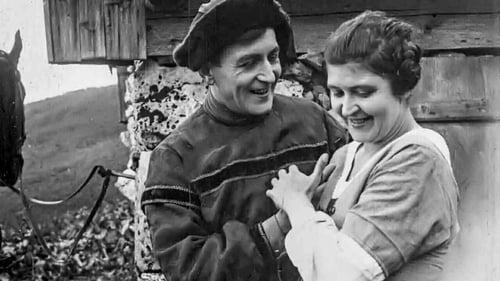
Berchtesgaden in the 15th century: A power struggle between mountain peasants who have been raising milk cows on common land and a village bailiff trying to gain power driving them off the land. Both have a ducal documents that states the opposite.

Directed by Franz Hofer.

Director

Iwan Kostalow











































